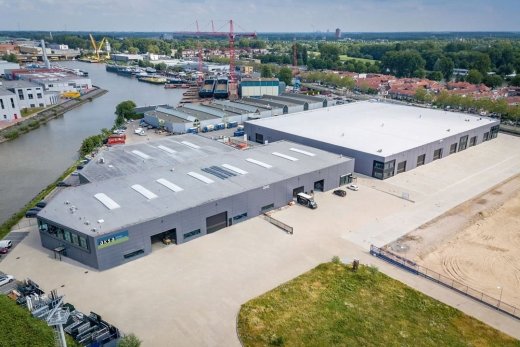Diesel generators are essential for reliable power backup across industries – from construction and agriculture to data centers and manufacturing. But like any piece of machinery, their efficiency, longevity, and overall performance depend on how well they’re used and maintained.
At Power Genset NL, we believe that a well-managed generator is a long-term investment. Here’s how to ensure your diesel generator performs at its best – for longer.
Choose the Right Diesel Generator Based on Your Load Profile and Application Needs
Before optimizing performance, you need to start with the right generator. Selecting a diesel generator that aligns with your power consumption patterns is crucial. For instance, a generator running below its capacity most of the time can suffer from wet stacking, while one that’s constantly overloaded may overheat and wear down prematurely.
Think about:
- The starting and running load of your equipment
- Whether your power needs are continuous, standby, or prime
- Environmental factors like altitude and ambient temperature that may affect performance
If you’re unsure, our team at Power Genset NL can help you perform a proper load calculation and choose a system that’s right-sized for both performance and fuel efficiency.
Build a Preventive Maintenance Schedule to Avoid Downtime and Extend Lifespan
Routine maintenance is not optional — it’s the key to long-term reliability. A proactive approach to servicing your generator helps you detect minor issues before they become major failures. A good preventive maintenance schedule includes:
- Weekly inspections for fluid levels and visual leaks
- Monthly functional testing to simulate power failure
- Quarterly or annual oil, air, and fuel filter changes
- Battery voltage checks and replacement every 2–3 years
Don’t forget: maintaining a logbook or using a digital maintenance tracker makes it easy to stay on schedule.
Operate Your Diesel Generator at Optimal Load Levels to Prevent Wet Stacking
Running a diesel generator at too low of a load for extended periods leads to unburnt fuel and carbon buildup in the exhaust system – known as wet stacking. This can reduce power output, increase emissions, and clog injectors.
To avoid this:
- Aim to operate your generator at 60% to 80% of its rated capacity during normal use.
- Use load banks periodically if your system is often underloaded.
- Match generator size to actual power demand as closely as possible.
Operating within the optimal load window ensures cleaner combustion, better efficiency, and longer engine life.
Ensure High-Quality Fuel Storage and Clean Fuel Management Practices
Diesel fuel can degrade over time due to microbial growth, condensation, and contamination – all of which reduce combustion quality and can clog filters or damage injectors.
Best practices include:
- Using fuel stabilizers and biocides if storing diesel for more than 30 days
- Installing a water separator and draining it regularly
- Keeping fuel tanks away from direct sunlight and temperature fluctuations
Periodic fuel testing to check for sediment or microbial contamination
Fuel-related failures are among the most common causes of generator issues – and they’re preventable with proper handling.
Leverage Remote Monitoring Tools for Real-Time Performance and Fault Detection
Modern diesel generators are often equipped with smart control panels and telemetry systems. These tools enable operators to:
- Monitor real-time fuel usage, voltage output, and battery health
- Receive alerts for faults, overheating, or low fuel levels
- Access historical performance data for trend analysis
- Remotely control the unit – including starting/stopping during emergencies
At Power Genset NL, we offer remote monitoring options that integrate seamlessly with your operational workflow, giving you total oversight even when you’re offsite.
Protect Your Generator with Proper Housing and Climate Control for Maximum Reliability
Environmental conditions can significantly impact generator performance. Rain, snow, dust, or extreme heat can all cause damage to sensitive components.
To protect your investment:
- Install the generator in a weatherproof enclosure
- Use soundproofed canopies if installed near residential or noise-sensitive areas
- For colder climates, consider block heaters and battery warmers to prevent hard starting
Ensure proper ventilation to avoid overheating and improve combustion efficiency
Generator enclosures also play a critical role in noise reduction and theft prevention, making them a smart choice for both safety and compliance.
Regularly Test Your Diesel Generator to Keep It Emergency-Ready at All Times
One of the most common mistakes businesses make is assuming the generator will simply “work” during an outage. Regular testing under real load conditions is essential to ensure your generator is always ready.
- Conduct monthly load tests of at least 30 minutes under 50–75% load
Run full load tests quarterly or annually to simulate real power failure conditions - Schedule emergency drills so your team knows how to respond
Testing your system builds confidence, exposes vulnerabilities, and ensures your backup power is more than just a paper plan.
Train Your Staff on Basic Generator Operation and Emergency Protocols
Even the best generator can be rendered ineffective if your team doesn’t know how to operate or troubleshoot it. Training ensures that power restoration is swift and safe during emergencies.
Topics to cover:
- Start/stop procedures and control panel navigation
- Interpreting alarms and alerts
- Emergency shutdown protocols
- Fuel handling and refueling safety
Whether it’s your facilities manager or the weekend security guard, make sure there’s always someone on-site who knows the basics.
Stay Compliant with Local and European Regulations to Avoid Fines and Delays
Generator installations in Europe must meet a range of compliance standards, from emissions to electrical safety. Non-compliance can lead to costly delays, shutdowns, or legal action.
- Ensure CE compliance under the Machinery Directive, LVD, and EMC Directive
- Check emissions limits under EU Stage V and local environmental laws
- Follow country-specific rules on noise, permits, and grid connection standards
Need help navigating regulations? Our dedicated guide on generator installation regulations in Europe has you covered.
Partner with a Trusted Generator Supplier for Long-Term Value and Support
Getting the most out of your diesel generator isn’t just about what happens after installation — it’s about choosing the right partner from the start.
At Power Genset NL, we:
- Help you choose the right system based on accurate load profiling
Offer full installation and commissioning services - Provide 24/7 technical support and maintenance
- Deliver turnkey power solutions tailored to your needs
📩 Get in touch today at sales@powergenset.nl and let’s build a power strategy that’s efficient, reliable, and regulation-proof.

